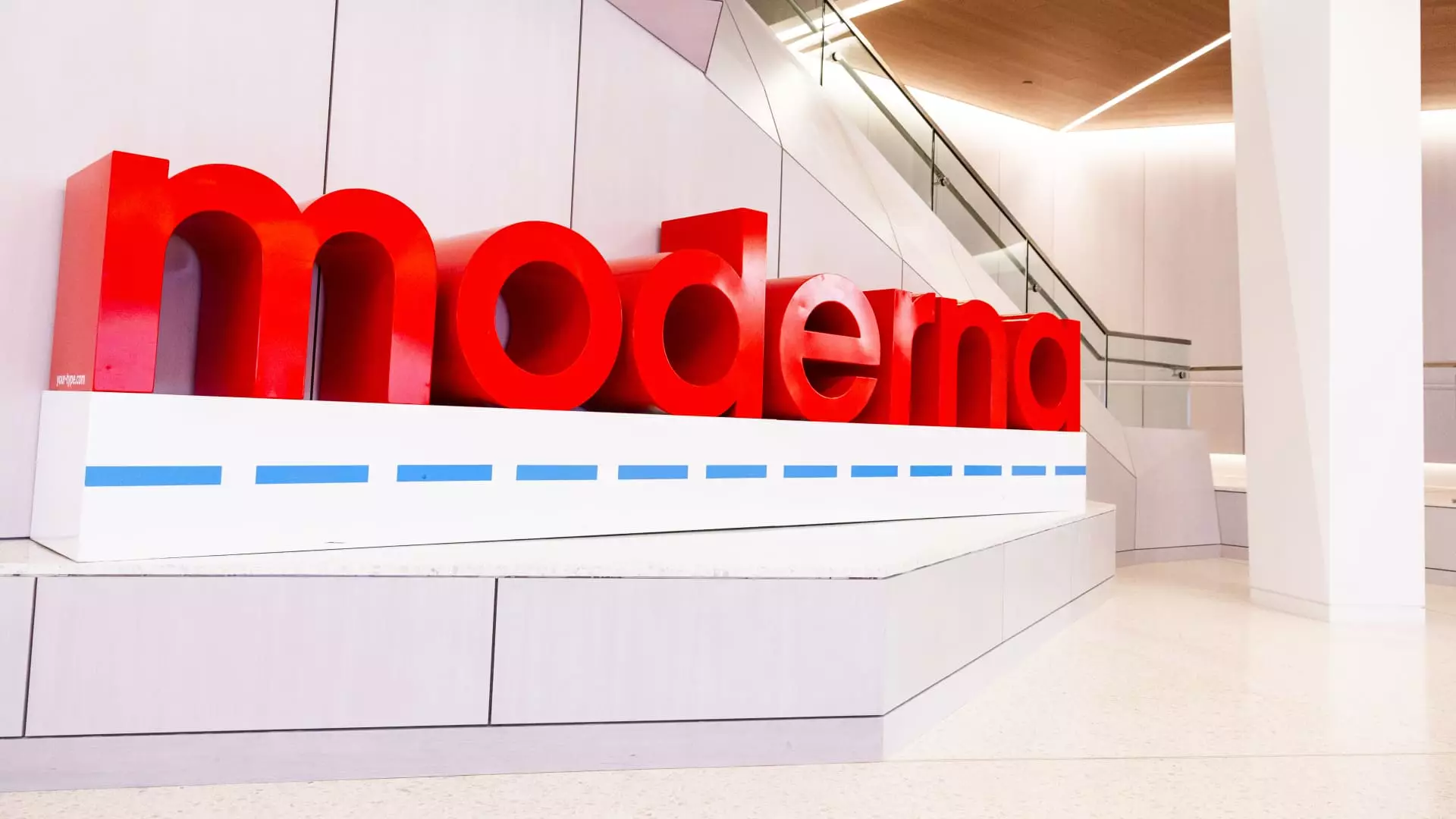In its fourth-quarter earnings report, Moderna highlighted a complex financial landscape that signals tumultuous times ahead for the firm. Despite surpassing revenue estimates, the biotech company sustained a net loss that far exceeded analyst predictions. Moderna’s reported revenue for Q4 2024 stood at $966 million, exceeding the expected $942.8 million yet indicating a staggering decline compared to the $2.8 billion in the same period last year. This juxtaposition illustrates the steep downward trajectory of Moderna’s once-thriving COVID-19 vaccine business, which now dominates its revenue but faces increasing challenges.
Notably, Moderna’s loss of $1.12 billion for the quarter, or $2.91 per share, starkly contrasts with a net income of $217 million, or 55 cents per share, recorded in Q4 2023. The financial strain delves deeper when considering a substantial $238 million noncash charge linked to a terminated contract manufacturing agreement. This weighty loss could spark concerns regarding the company’s ability to transition smoothly from a pandemic-era powerhouse to a sustainable product portfolio.
In light of declining revenues, Moderna’s management announced aggressive cost-cutting initiatives that reduced expenses by 27% from 2023 levels. CFO Jamey Mock emphasized that by the end of 2025, they aim to achieve an additional $1 billion in cost reductions compared to 2024. While these reductions may seem prudent, they raise questions about potential impacts on research and development, which are crucial for sustained innovation in a competitive biotech landscape.
Moderna’s current challenges stem largely from plummeting demand for its COVID-19 vaccine, compounded by rising competition and lowering vaccination rates. The expectation that only $200 million of the sales target for 2025 will materialize before the second half of the year further complicates the company’s financial outlook. This pessimistic forecast, which lowered previous guidance by roughly $1 billion, has triggered a notable 20% drop in Moderna’s stock year-to-date.
As Moderna navigates this unpredictable environment, competition from rival pharmaceutical companies poses an acute challenge. The landscape for COVID-19 vaccinations is evolving, with newer entrants vying for market share. Moreover, legislative and marketing factors could impact how quickly the market rebounds for existing vaccines. Mock hinted at these evolving dynamics, suggesting that several potential hurdles could drag the company down to the lower end of their revised sales guidance.
In addition to these challenges, reductions in advance purchase agreements for COVID-19 vaccines have negatively impacted international sales. The company’s upcoming pipeline of products, primarily underpinned by its mRNA technology, aims to revitalize its fortunes. However, the execution of these strategies will be critical to restoring investor confidence.
Despite these trials, Moderna is steadfast in its ambitions to diversify its product lineup. The company recently launched its RSV vaccine, which generated $15 million in U.S. sales and signifies the second product approval following the COVID-19 vaccine surge. These sales outperformed analyst predictions, hinting at a potentially robust market for the RSV vaccine, especially among individuals aged 60 and older.
Looking ahead, Moderna is nurturing a pipeline bolstered by 10 planned product approvals in the next three years, while actively pursuing regulatory approvals for several mRNA-based vaccines. One of the most anticipated developments is the “next-generation” COVID vaccine, expected to gain FDA approval by May. The planned combination vaccine targeting both COVID-19 and the flu could also capture significant market share, especially with seasonal peaks in demand anticipated.
Furthermore, groundbreaking projects, such as a personalized cancer vaccine in collaboration with Merck and a standalone flu shot, highlight the company’s innovation-driven strategy. These products represent a departure from reliance solely on COVID-19, reflecting a broader industry trend that encapsulates the future.
Moderna stands at a critical juncture marked by financial losses, a changing market landscape, and significant competitive pressure. As the company strives to pivot away from its COVID-19 legacy, effective management of costs and successful product diversification will be pivotal. With its ambitious pipeline and plans for operational efficiency, Moderna’s future hinges on its ability to navigate these transitions while restoring faith in its long-term potential amidst the uncertainties of a post-pandemic world. Investors and stakeholders will keenly watch how Moderna leverages its mRNA technology and manages upcoming challenges to redefine its identity.


Leave a Reply